Finnish Influencers Break the Law for a Swim in Blue Cave in Croatia
August 28, 2022 - The secret is out, Croatia is a beautiful country with untouched nature, delicious food, and some of the friendliest people. This kingdom of accidental tourism is still relatively new on the world vacation scene, but it is coming up quickly and aggressively. Whether that is family or active holidays, luxury escapes or hot girl summers, the demand has been incredible. The question is, can we take it? Is Croatia equipped to deal with the massive influx of vacationers? Not that it's all on us - are our guests too self-entitled to care? UNESCO heritage site rules don't seem to bother influencers.
The popularity and the fame that come with becoming known as one of the top world tourist countries come with some significant numbers. Numbers, of course, are people, and people, unfortunately, are not always very nice. TCN has been covering the tourist season 2022 extensively, and though it has not always been the best news, credit where credit's due - the institutions have been working together to implement strategies and rules to try and keep the rowdy crowds under control. Now, many problems remain, as witnessed in some of the scenes from Split, and not all strategies have immediate effect.
To enjoy and share a tourist gem such as Croatia, while managing it all in a smart way is not an easy task. Unfortunately for some, not all experiences can be exclusive, and the effort needs to go both ways (effort very loosely defined here). Let's not be oblivious to the fact that Croatia needs good marketing just as much as tired holidaymakers and excited adventurers need Croatia. After the rise of social media, influencer marketing on Instagram has become a valuable tool for destinations and tourist boards, as well as hospitality providers. The relationship between the businesses is often based on an exchange of services, with, e.g., hotels offering free luxury accommodation for marketing content on social media. The problem arises with the fact that social media influencers need to become big before they can start making a living from their influencer business. Now, since the market is already so saturated, they will often go out of their way to seem more interesting, fun, a little bit daring, whatever it takes to be noticed.
Like any sought-after market, Croatia has had its share of such encounters. More recently, we've had the pleasure of viewing and enjoying the adventures of Sabina Särkkä and Julia Toivola, the interesting friends of the Finnish PM. A few particularly lucky crew and passengers on a random Jadrolinija ferry even had access to some exclusive content. Both of them, alongside others from their group, have been publicly sharing on her Instagram all about their summer in Croatia, stay in Hvar, sailing the islands, swimming, partying, and just enjoying life. We are grateful for her enthusiasm, especially the ferry mentioned above. The question for the Croatian authorities, though, is what makes them special?
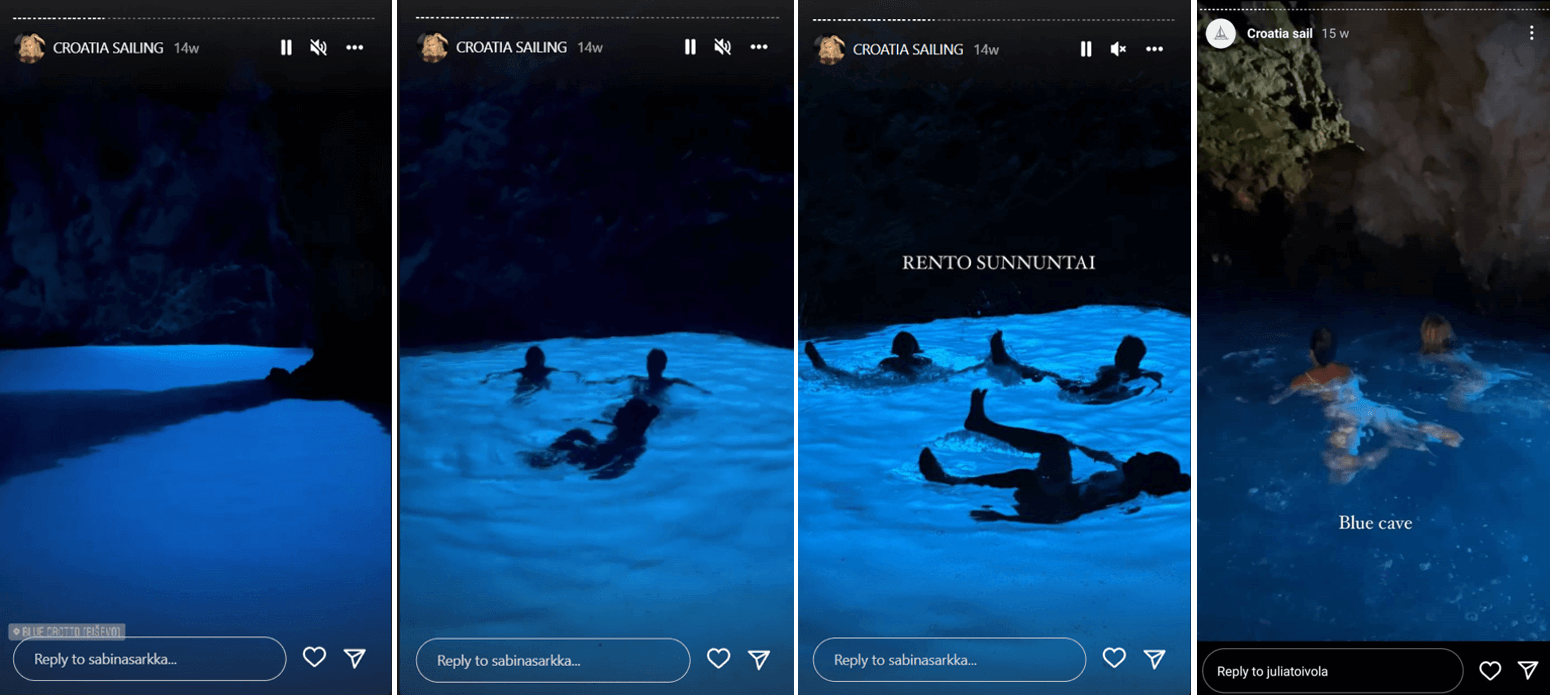
Screenshots: Sabina Sarkka and Julia Toivola Instagram stories, highlights CROATIA SAILING and Croatia sail, still active on their profiles
As Index writes, in their Instagram stories, both Sabina and Julia publicly shared videos of their group swimming in the Blue Cave in Biševo, where swimming is strictly prohibited to preserve the wildlife. The Blue Cave, a UNESCO Heritage site is famous for its unique colour which is a phenomenon that occurs around specific times of the day when the sun hits the inside of the cave in just the right way to highlight its anatomy and reflect the most beautiful blue of the Adriatic Sea. Visits to the cave are only possible with paid tickets, and don't last long due to the demand and the crowds keen to witness the beauty every day. In Sabina and Julia's videos, where the location was clearly marked, it looked like the group of friends not only enjoyed the visit in private, but also the opportunity to soak in the beauty in a way in which simple folk would not, by taking a little swim right in the middle of the Blue Cave. Whether or not they were fined for it we don't know, but in a world where the only thing we ask of you is to respect our environment to preserve it for both me and you, please, don't be like the above-mentioned influencers. It's not that hard.
For more, make sure to check out our dedicated Lifestyle section.
Meet NK Vis, the Most Isolated Football Club in Croatia
April 6, 2022 - Meet NK Vis, a football club and school fighting for the island's youth, allowing no distance to deprive its children of playing the sport.
Football is played around the world thanks to its simplicity - even in the most isolated places. Because Croatia is a small country, almost no one thinks of really isolated places, but if you sit on the ferry from Split to Vis, you'll need to kill two hundred minutes of sailing to one of the most beautiful Adriatic islands. When Brač and Hvar are behind you, in the distance rises Vis, surrounded by sea-strewn cliffs, and right there on the high seas, there is a small club of the same name that has been resisting its geographical integrity for decades, writes Aldo Franičević for RTL.hr.
Football on the island has a long tradition, and NK Vis celebrated its first days back in 1935, but Vis had to replace the football with rifles due to World War II. At the end of the great war, NK Naprijed Vis was launched, which existed for three and a half decades. Interestingly, HNK Hajduk even played a friendly match against the Vis club.
Unfortunately, its isolation and lack of money left Vis without a football club in 1979, leaving only the summer indoor league on the island. Soon the island was left without a football field. In those years, it seemed like football had lost the battle with distance after decades, but in 2006 a miracle happened.
At the end of 2006, Marinko Ivanišević-Mane, with a handful of football enthusiasts, started a children's football school on Vis and registered the Vis football club, thus renewing the continuity of the Vis football school after a 30-year hiatus. A few years later, Vis inhabitants first got a smaller football field, and in 2013, a large grass field was built with the help of the City.
The following year, they registered a senior team that competed in the 2nd County League for several seasons. Unfortunately, the senior team was short-lived, but the football school has survived and is stronger than ever under its young and ambitious leader Mario Potočnjak.
Potočnjak spoke about the success of the Vis football school but also revealed the many problems young footballers encounter living on the island.
"Before I came to the club, several coaches changed. In the beginning, there was enthusiasm, and then there was a senior team, but as time went on, interest and opportunities decreased as far as the senior team was concerned. They competed for a while, but they stopped before I came. After that, they played in the county league, but now they don't play anymore. However, the football school is still alive, and I can say that it has grown nicely," said Mario Potočnjak, a 28-year-old coach from Pag who has been leading the development of the sport on Vis for five years.
Although the senior team shut down some time ago, the football school is growing and thriving thanks to the efforts of coaches and the encouragement and support of the local community.
"This year, we have 70-80 students. Of course, that number varies, especially in the winter. We also work with preschoolers, which are children aged 5-6. We currently have four categories - 10-12 preschoolers, some boys, some girls, about 15 younger beginners made up of first graders, there are about twenty beginners and a group of younger pioneers competing this year in the 3rd County League, and there are just over 20 of them. These are mostly children from Vis and Komiža, with a few children from the surrounding areas. It should be said that these 80 boys and girls are quite a number considering the total number of children in the island's primary schools," says Potočnjak, adding that clubs on the islands face problems that they can hardly imagine on the mainland.
The biggest problem is the poor connection with the mainland and other islands, which is always a full-day trip, even when traveling to nearby Hvar or Brač.
"The worst thing is that when we play on land, we have to take the ferry at 5:30 in the morning from Vis, which means the kids have to wake up around 4 am. This is especially problematic in the winter, and it is in the winter that we cannot rely on a catamaran that should leave at 7 am from Vis because you never know what the weather will be like and whether it will run. The trip by ferry to Split lasts for over two hours, and the matches are played at 9 am. This is a big problem when it comes to performance on the pitch, but the worst thing is that it is very hard for children and takes a long time," reveals the head of NK Vis.
"It's still good when we play in Split because when we play in other places, it is even more problematic. For example, against clubs from Hvar, Brač. We are fighting a battle with the Federation and trying to explain to them that in this league of young pioneers, in which there are only seven clubs, we have the biggest problem when we go from island to island. Of the seven clubs, two are from Brač, Jelsa from Hvar, and we are from Vis. Those from the Federation think we are close to the islands, so it is easy. It is easier for us to go to Sinj or Imotski than from Vis to Brač and Hvar in winter," says Potočnjak and immediately explains.
"When the weather is bad in winter, we would have to go from Vis to Split and then again an hour and a half back to Stari Grad on Hvar, arrange transportation to Jelsa and then repeat it all on the way back for an hour-long game. So when we have those games in the winter calendar, we somehow agree to move it to spring and then organize a speedboat or transport. In the end, it turns out ok, but it requires a lot of organization and money," Potočnjak added and gave an example from the 14-hour visit to NK Postira Sardi on Brač.
"They couldn't play that game on Saturday because other categories were playing for them then, and we decided not to forfeit and change it for a later date. So on Sunday, we leave Vis a little later, around 7:30. But the problem is with the return. The first boat to Vis that we can get is only at 7 pm. We were in Split by 3 pm, but we could only go home four hours later. We came to Vis around 9:30 pm. In other words, we spent about 15 hours going from Vis to Brač just to play an hour-long game, and the children go to school on Monday. That's a huge amount of energy spent that way," Potočnjak adds.
But as he says, giving up is not an option, and everyone is looking at how to make this positive. What saddens him is that his teams often fail to show their best performance when playing away, considering that they are exhausted even before they put on their jerseys and run on the pitch.
"I noticed a big difference in the quality of performance. We have a small base, and the difference is felt when you play against clubs from Split, but regardless of when they come to visit us, the game will be at 2 pm because they come by ferry from Split at 11 am. The visiting teams on Vis don't have that problem. There is a big difference in the energy of our children when we play at home and away, so the result suffers a little, but in principle, the result is not primary," Potočnjak said.
He is happy that the local community is actively involved in the club. Namely, a lot is being invested in sports and youth in the City of Vis, and even apartments for young families are being built, which suggests that the club could soon get more new players.
"NK Vis is almost exclusively financed by the City of Vis, and this is where we encounter small disagreements because many of the boys and girls in the club are from Komiža. Unlike the City of Vis, they have not had an understanding for years, and we have little help from them. This year, they helped organize transportation for children from Komiža, but now new problems have arisen. In addition, we have income from membership fees that amount to a symbolic one hundred kuna per month," reveals Potočnjak and uses the opportunity to highlight the benefits the entire island has from the club.
"The club's contribution to the community is great because, unfortunately, there is no other sports organization on the island in which children can join. There have been some attempts at basketball and the like, but it has not come to life. There is bowling and bocce in Komiža, but without belittling anyone and any sport, it cannot be compared to football. Practically, this is the only thing we have to offer children from systematic activities," claims Potočnjak.
So, what ambitions do the club and the city have in the future?
"There's no plan to re-establish the senior team at the moment. Some guys are more ambitious and would play, but it dies quickly, and the costs and fines are enormous. If the boys don't get together or can't go to the game, the Federation issues fines, and debts are still dragging on from when the senior team existed, so it is better to focus all energy and strength on youth," concluded Mario Potočnjak.
He added that they are all focused on the 14th tournament for Vis City Day, which takes place on April 23 with several football teams.
To read more about sports in Croatia, follow TCN’s dedicated page.
Meet Ivana Jozic and Her Approach to Gaining Confidence in Public Speaking
March 17, 2022 – TCN had the opportunity to meet Ivana Jozic and talk about her work, including the Speak Through Fear project, an approach to enhance public speaking capabilities, guiding participants through a personal process to unlock their potential, and encourage effective presentation.
There comes a time when everyone must be in front of an audience, albeit small, or at some point be interviewed and perhaps feel unsuitable or not sufficiently prepared. It happens every day and almost to everyone, be it a professional or a family circumstance. Society itself puts us in front of these daily trials which sometimes become fears.
As always, some people feel more confident and more relaxed than others who get blocked and cannot express themselves just for the simple fear of doing it. Those who are looking for a solution and help in this field could rely on the professionalism of Ivana Jozic. She was born in Zagreb but has built her incredible career as an actress and dancer in Antwerp.
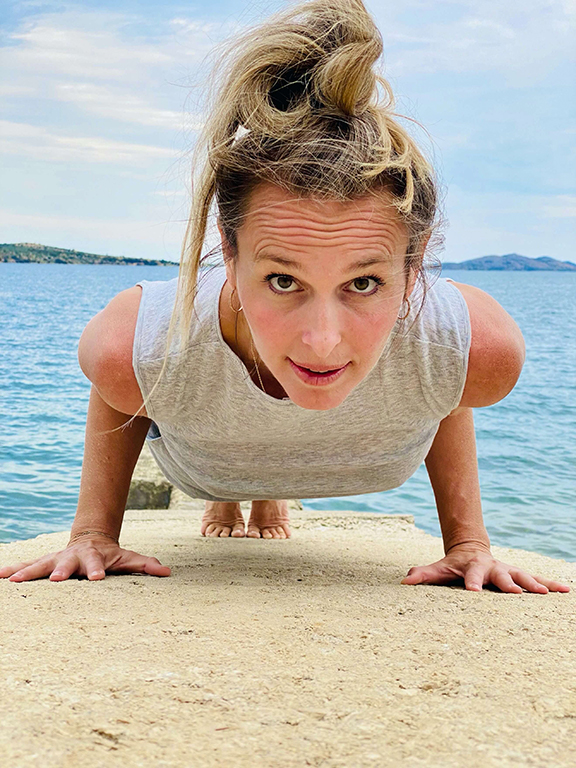
Credit: Masa Lucic
Ivana studied dance at the School for Classical Ballet in Zagreb and the London Contemporary Dance School, but she also studied acting at Drama Studio London.
She started working with the Belgian visual artist, theater director, choreographer, and writer Jan Fabre in 2003 in several performances; she also toured for four years with Fabre’s solo Angel of Death, a worldwide success that won the Golden Laurel Wreath at the MESS International Theatre Festival as the best overall performance. In 2008, Fabre has written and created another solo for her: Another Sleepy, Dusty, Delta Day. She is regularly teaching in Jan Fabre Teaching GroupWorkshops and is still actively performing.
Thanks to her background in education and being professionally active in arts for over 30 years now, she is very well acquainted with the difficulties and limitations that stage fright can create. And that is precisely why she developed an approach for people outside the realm of performing arts and who are presented with the challenge of public speaking, guiding them to overcome their fears and insecurities when on stage, be it an actual stage, podium, a meeting, or an interview.
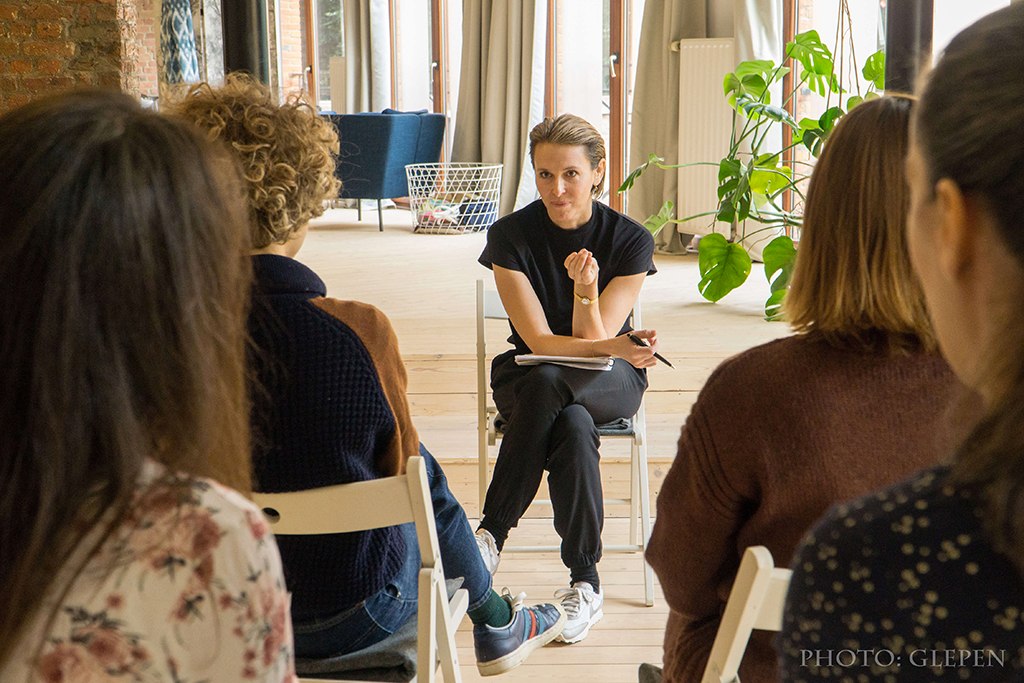
Credit: Goran Lepen
In her approach of Speak Through Fear, she points out that we always need to find a way to have a strong relationship with what we are saying. How can we convince others if we are not convinced ourselves? This is the question that we must always answer. Thanks to this redefinition of the person’s motivation in the speaking situation and by guiding the person to a genuine approach towards public speaking, everyone can find the most natural and best way to reach it.
When did you start this teaching project?
The idea of ‘Speak Through Fear’ teaching/coaching has been present for a long time. I have been teaching in theatre workshops for many years, and at some point, I realized that I could draw parallels working with people outside of the artistic realm on public presentation. Since there is a significant demand for this kind of practical approach to the public presentation, I have decided to create a coaching program. The project started in 2020 as a result o the long-term experience I have as a performer and a teacher. I find it challenging and refreshing to share it with people who are not necessarily directly connected to arts but who can significantly benefit from the mechanisms of presentation skills I am incredibly familiar with.
What kind of professionals and people attend your workshops?
The workshops are for anyone who wants to improve their public speaking and presentation skills. We have a wide range of participants: creatives who need to present themselves and their work, big companies, managers, freelancers, entrepreneurs, executives, policymakers, representatives of the EU institutions, NGOs, students, sales & marketing experts, real estate agents, yoga teachers, and other professionals. These are not always people having some fear and obstacles when facing a public speech, but they can also be very experienced with public speaking, but nevertheless want to work on the improvement and development of their skills and appearance, both online or offline. And this workshop is created for both categories in order to feel safe and supported while learning how to deal with fear or challenges in the arena of public presentation.
How many people are in your working groups?
It is a workshop designed for every individual type of job. Otherwise, the experience of the participants becomes too passive. Therefore, I have limited the number of participants from 4 up to 10. Everything above that would not be fair and would not give a chance to the participants to experience what I am aiming for. For people who would like a more individualized approach, I also work with them in 1-to-1 individual mentoring, including short-term and long-term mentoring consisting of monitoring, advising, and guiding the person in their process and development.

Credit: Masa Lucic
What’s the difference between the various coaching courses we have now and this one?
The main difference is that it is a workshop of a practical nature. What does that mean? It means we are not sitting and talking (only), but we tend to test public presentations in practice and, in this way, give participants a possibility to experience and learn. I am using relaxation exercises to enhance focus and concentration and several physical activities to liberate the body and voice. And then, the main part of the workshop is working on each participant’s speech individually. In that way, participants have a chance to test their speeches and, together with me, find out how to improve the speech itself and the way it is presented. There is no specific technique to master. Each participant is encouraged to find their own most authentic and comfortable way. I am guiding them in that process. Participants’ feedback we have received so far is overwhelmingly positive. Recently, one of my participants told me that this was a unique experience for her after she attended many different public speaking workshops. She emphasized the importance of this practical, rehearsing part, and exercises we are doing at the workshop, which is missing from many other public speaking workshops.
You hold your workshop mainly in Antwerp. You have scheduled two workshops in April, the 2nd in Brussels and the 9th in Antwerp. What about Croatia? Last year you organised a workshop on the island of Vis. Will you replicate this year?
This year, we will organize a workshop again on the island of Vis for a limited number of participants. It will be a 3-day public speaking workshop from 9th to 12th June in a format of business gateway for clients from all over the world. Far away from busy lives, this workshop will combine work with the amazing nature of the enchanting island of Vis, good food, excursions, and relaxation. Along with deep individual coaching and intensive work with me on improving participants’ skills in public speaking, participants will be given a chance to find peace and concentration, allowing their innate skills and talents to develop. We are preparing a special offer, and soon you will know all the details. Places are limited to a maximum of 12 people, so I would like to take this opportunity and invite all the interested people from Croatia as well, to register already to reserve their place and join us in this unique opportunity of professional development on a beautiful Vis! This would be also a great opportunity for them to meet, connect and network with other international business professionals. You can find all the information on our Speak Through Fear website.
For more, check out our lifestyle section
NGO Launches Project for Preservation of Local Fish Species Around Vis
ZAGREB, 12 Dec 2021 - More and more frequently, fishermen on the Croatian island of Vis find in their nets smaller and smaller local fish species and new invasive species, which prompted the local "Pomalo" nongovernmental association to launch a project of raising awareness of the importance of environment protection.
The association, environmentalists, and experts warn that the higher temperature of the Adriatic Sea, the fewer indigenous species. Thus, stocks of small pelagic fish -- sardines, anchovies, or picare -- are dwindling in the eastern Adriatic part, and those fish are important not only for the diet of local inhabitants but also as the fodder of larger fish.
In addition, local fishermen who have first-hand insight into fishing stocks say that for instance, the average size of sardines turns out to be smaller than before. For instance, a kilo of this fish used to encompass about 24 pieces of sardine, while now 40-50 sardines weigh a kilo.
The Komiža-based Pomalo NGO has launched the project called "Neptune's Children" to help local inhabitants, particularly fishermen, to be more successful in dealing with the challenges stemming from climate change.
The association's head Igor Mataić has told Hina that fisheries are one of the rare local business activities that can provide revenues around the year.
The association in cooperation with the Institute of Political Ecology and the Zelena Akcija NGO started implementing the project which includes workshops about climate change and about sustainable fishery management.
Experts also warn that the Adriatic Sea is a semi-closed ecosystem susceptible to climate change, and changes in temperature, salinity, oxygen levels, and sea currents have repercussions for biodiversity.
Professor Branko Dragičević has told Hina that the Adriatic ecosystem can be endangered by new poisonous fish such as silver-cheeked toadfish, red lionfish, and other predatory fish that can also be dangerous for people.
Local fishermen say that when it comes to invasive species they have come across Mediterranean parrotfish, grey triggerfish, African sailfin flying fish, or yellowmouth barracuda.
For more, make sure to check out our dedicated lifestyle section.
Croatian Gajeta Photo Becomes Official European Union Postcard
October 28, 2021 – A Falkuša gajeta from Komiža on Vis island and a Betina gajeta from Murter are shown in a competition-winning Croatian photograph which will now become an official European Union postcard
If you're reading this, chances are you already know Croatia is very often 'postcard-pretty.' Well, it seems you're not the only one to think so.
One Croatian photographer's work has won over judges in a competition to find an official European Union postcard. The photograph (main picture), taken by Hina journalist Andrina Luić shows two sailing boats – a Falkuša gajeta and a Betina gajeta. Both are traditional wooden ships commonly seen in Croatian waters. In the background, the Betina gajeta is instantly recognizable as Croatian because its sail carries a red and white checkerboard pattern.
European Union postcard competition
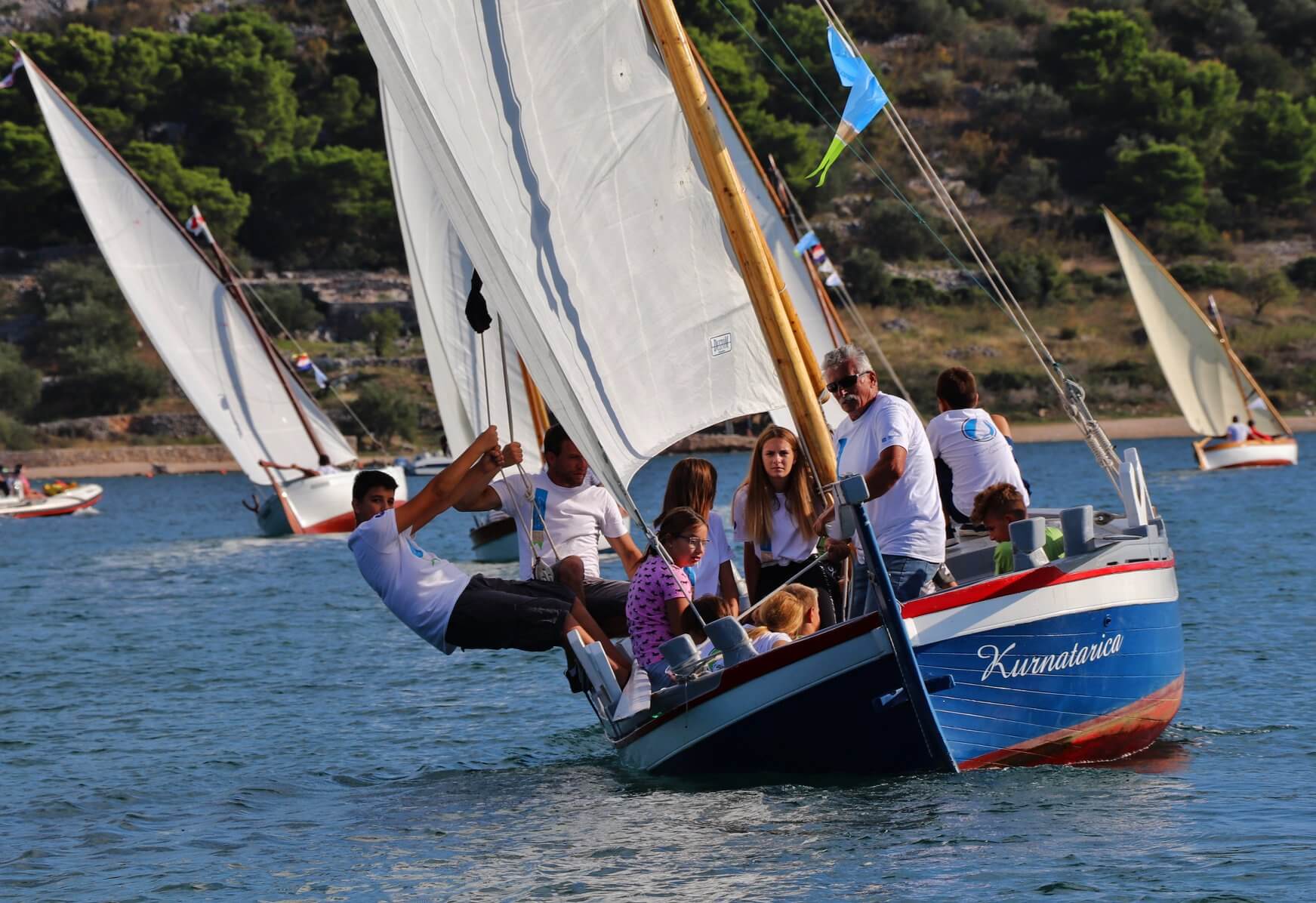 © Dani u Vali
© Dani u Vali
The 'Greetings from the Islands' photo competition was published in September by the European Commission's Clean Energy for EU Islands Secretariat (here). Andrina, who is from Lukoran on Ugljan island, took her winning photo two years ago in Stari Grad on the island of Hvar. The sailboats were snapped during the festival of ships, sea and sailors 'Days in Vala' (here). The event is organized by Cronaves of Split, of which Andrina is a member. They are a society with an aim to promote Croatian maritime heritage.
Andrina's photograph will now help promote Croatian maritime heritage all across the continent. Thousands will see the traditional wooden ships and their sails when the image is made into an official European Union postcard. The picture triumphed above other island photo entries from Italy, Spain, Germany, Portugal and elsewhere in Croatia. The evaluation criteria were originality, creativity, overall artistic impression and composition, and visual appeal. Each competitor was only allowed to enter one photo into the competition. It would seem that Andrina - who has been taking photographs for many years - made exactly the right choice.
Falkuša gajeta from Komiža on Vis island and Betina gajeta from island Murter
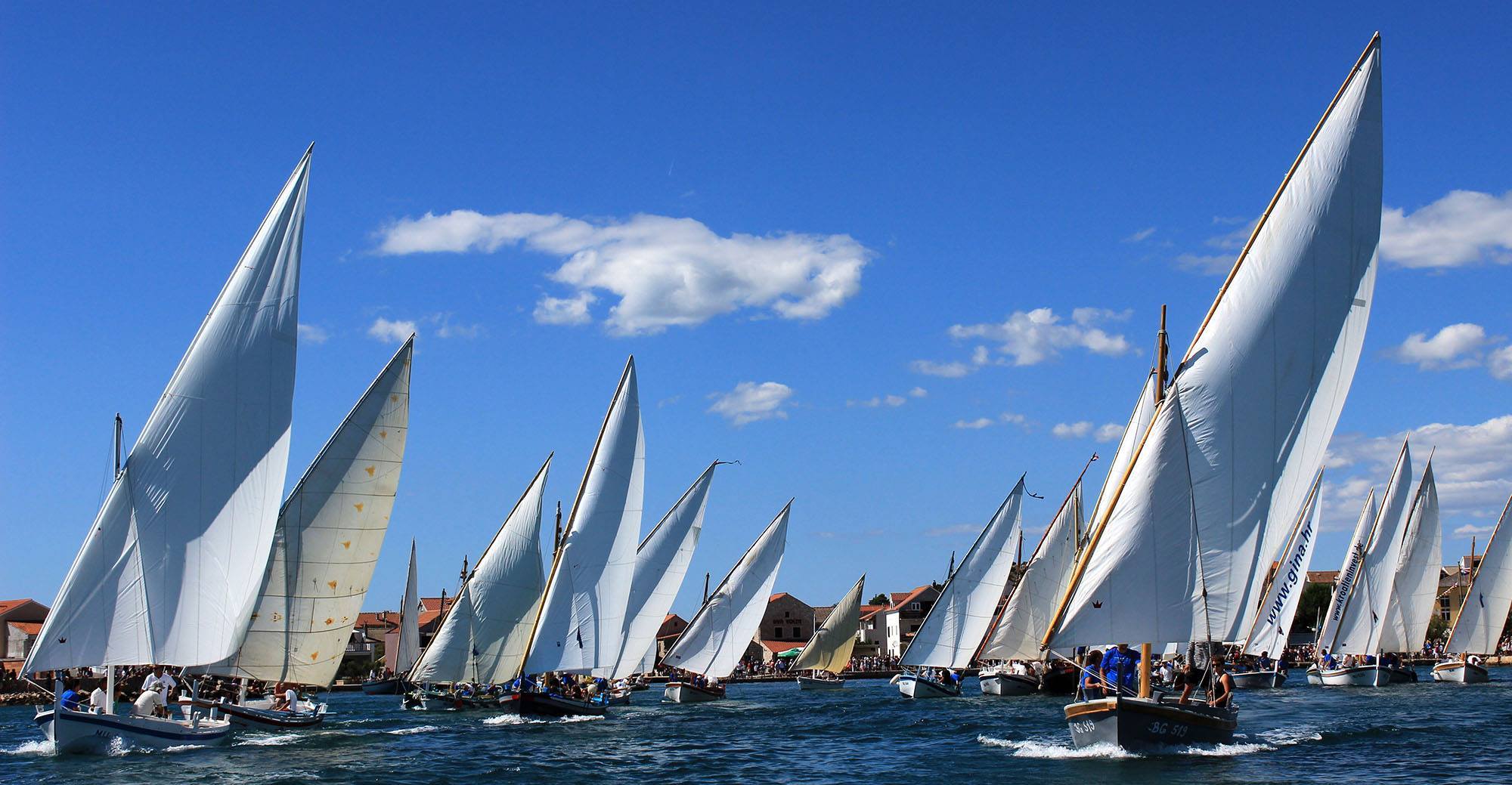 Traditional gajeta ships from Betina in a regatta around island Murter © Neven Jović
Traditional gajeta ships from Betina in a regatta around island Murter © Neven Jović
A Falkuša gajeta is a thinner and faster version of the Murter-style gajeta. Falkuša boats have been used for fishing in the area of islands Vis and Korčula since at least the 16th century. They were adapted to the needs of fishermen from Komiža on Vis island, who would regularly travel far out into the open sea - as far west as the Palagruža archipelago - to chase their catch.
The template of these boat designs was taken to Betina on Murter island by Korčula shipbuilder Paško Filippi in the first half of the 18th century. There he founded a shipyard and began building his boats, adapting them to the slightly different climate and the very different needs of the locals.
The people of Murter and its surroundings needed a boat as much for transportation of goods as they did for fishing. Therefore, the Betina gajeta was made stronger, wider, bigger and more load-bearing, with a deck at the bow and stern. They were commonly used to transport goods between Murter and estates on the Kornati islands.
You can today visit an award-winning museum (here) dedicated to the history of this wooden boat building in Betina, island Murter. Or, if you can't make it there any time soon, you can now make do with one of Andrina's postcards until you can.
A Journey to Brusnik, Croatia's Unique Volcanic Island
June 3, 2021 - ''Suddenly, the sky grew dark, a terrifying wind blew across the Adriatic, and then, with a bloodcurdling crash, the sea parted. Boiling magma came rushing out from within the very center of the Earth and a great mountain rose right in front of the eyes of the townspeople of Komiža.'' Magnetic disturbances confuse compasses and cause trouble for seamen, dark rocks the smell of molten lava, and unforgiving terrain which became home to some of the most endangered species of Croatia. Meet old man Brusnik, one of the only two volcanic islands in Croatia.
Brusnik really is the stuff the fairytales are made of. From afar, it looks like something straight out of Steven Spielberg's Jurassic Park, and truly, it has been here since the time dinosaurs walked the Earth. For die-hard Game of Thrones fans, its shores made almost entirely from flat, oval, black diabase rock would make for a perfect Dragonstone.
Part of the Vis Archipelago, this 150 million years old island has been protected as a geomorphological monument of nature since 1951. Standing in the shadow of the much more popular Blue Cave and Blue Lagoon, Brusnik is nevertheless a real treat for adventure lovers and its rich history can offer a lot more than at first meets the eye. Although there is one other island of volcanic origin in the Adriatic, Jabuka (lit.:Apple), it is far more difficult to visit due to its position on the open sea.
Brusnik got its name after the Croatian word for a whetstone, brus, as the island is built mostly out of diabase, a type of rock used in the production of whetstones. The closest point from which the island can be approached is the fishermen's town of Komiža. Since the two are separated by a distance of 12 nautical miles and there is only one cove on the island safe enough to dock, a visit to Brusnik is possible only during the fairest weather.
Although set so far away from the civilization, the waters surrounding Brusnik are bursting with life. On your journey there, almost as soon as you leave Komiža, you're guaranteed at least one instance of dolphins. They adore this area of the Adriatic, as it's extremely rich in fish. In the past, the only people who regularly visited Brusnik were fishermen of Komiža, whose coveted catch of lobsters graced the tables of Europe's nobility. The only other living creature you can meet on Brusnik itself is a tiny endemic species of the black lizard, whose escape into the hollowed-out rocks signals the arrival of stormy weather.
Due to its unforgiving terrain, which doesn't allow for much water to stay on the surface, few plants are able to thrive there. One of them is dubrovačka zečina, an indigenous species of flower which also grows in Dubrovnik, and Brusnik capers, another specialty of Dalmatian cuisine. It is strictly forbidden to pick either of the two, as both are close to extinction.
Each of Croatia's thousand islands is special, but Brusnik is perhaps the most special of them all, especially if you are as fascinated with volcanoes as the authors of these lines. Until the circumstances became more favourable to visit Italy's Etna, there is always Brusnik. In fact, who needs Etna, where there is this wonder of nature.
Check the photo gallery below, courtesy of Slaven Škrobot, who didn't let a small matter of having a wheelchair stop him from traveling the world. You can read more about Slaven's mission HERE.
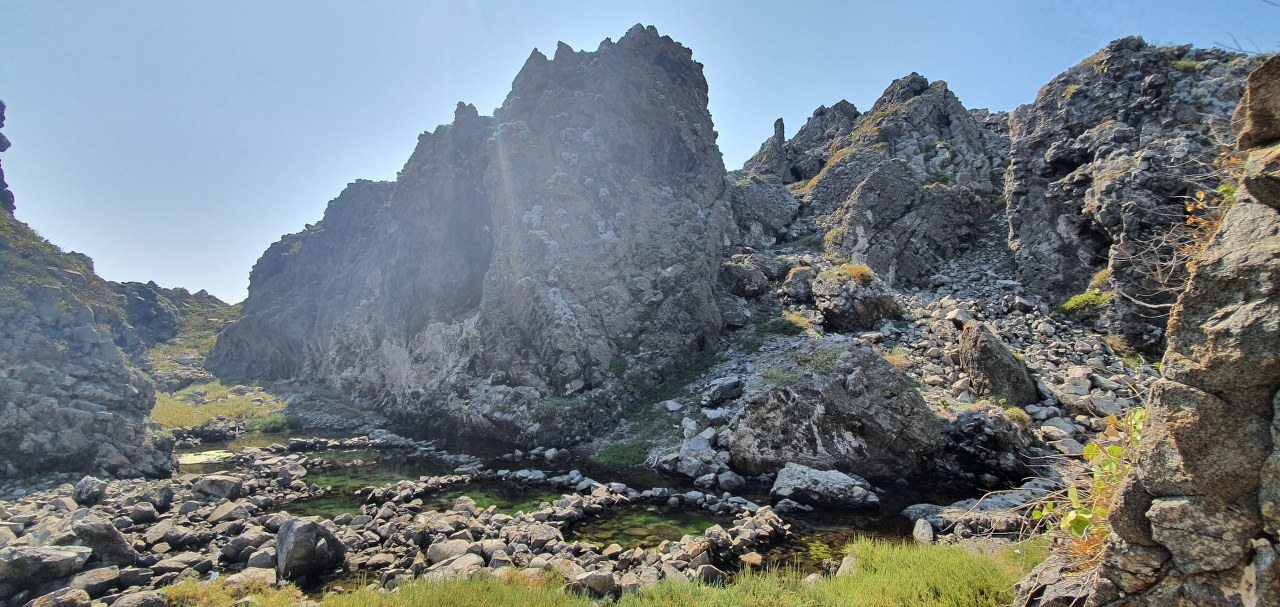
© Slaven Škrobot
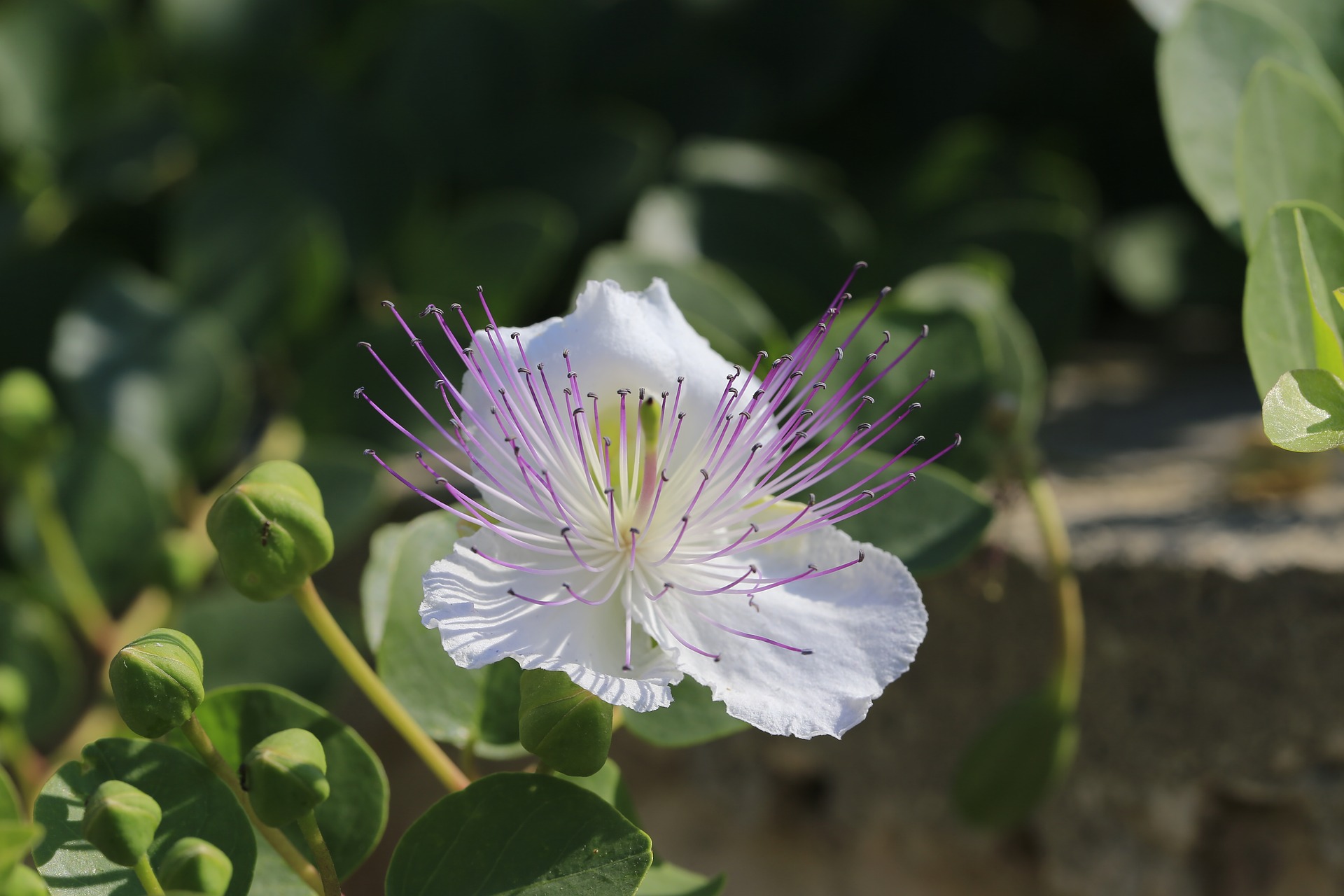
Capers in bloom/Pixabay
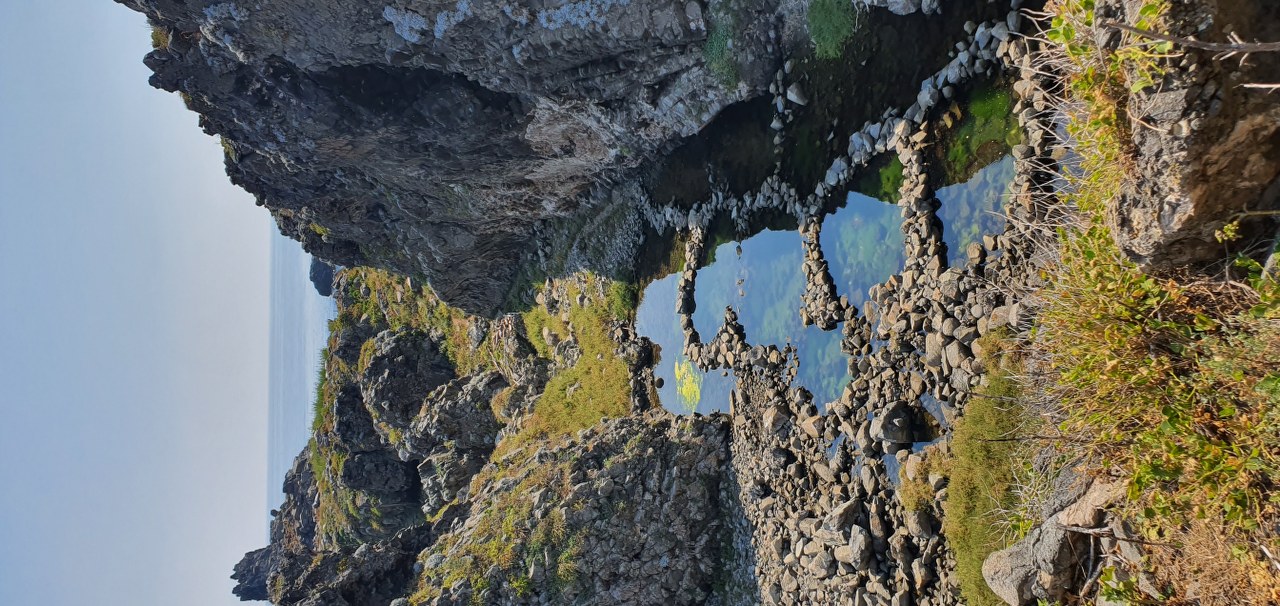
Jastožere - pools of sea water built by fishermen to keep lobsters in/© Slaven Škrobot
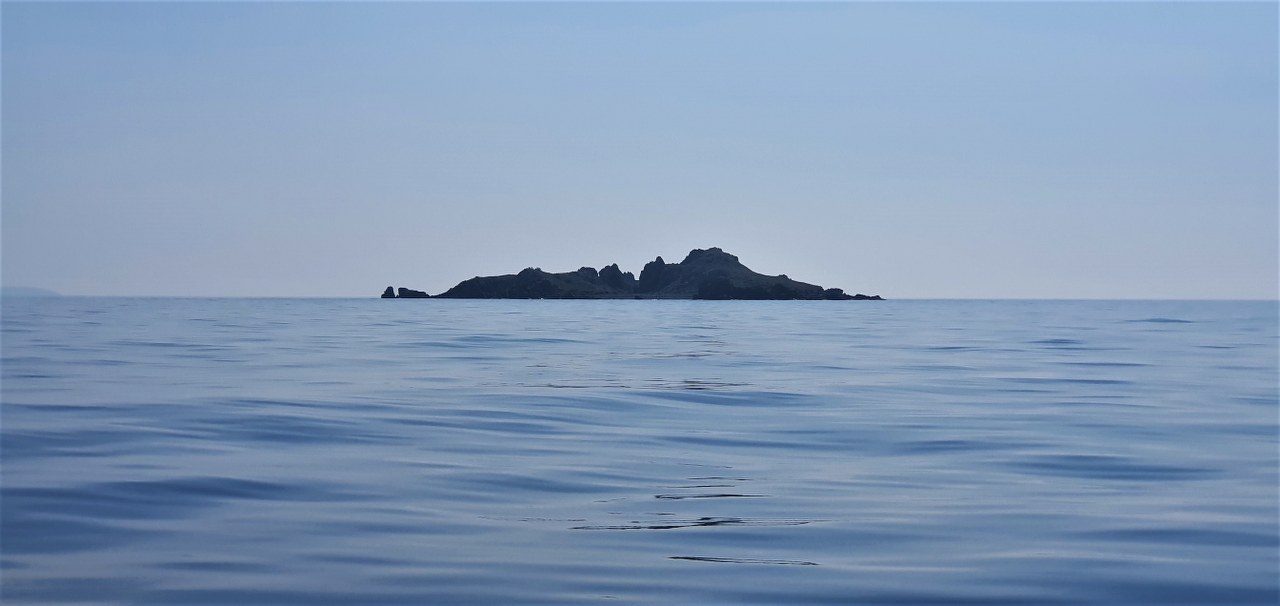
Brusnik from afar/© Slaven Škrobot
Follow more of Slaven's adventures on Instagram.
For more on travel in Croatia, CLICK HERE.
Ivo Pilar Social Research Institute: Celebrating 30 Years And New Office on Vis Island
May 6, 2021 - Ivo Pilar Social Research Institute celebrates its 30th birthday in 2021, and they recently opened a branch office on Vis Island.
The end of April saw the Ivo Pilar Social Research Institute, named after Ivo Pilar, a researcher and a publicist whose work immensely influenced social and humanistic science scenes in Croatia- open a branch office in the City of Vis on Vis Island.
Head of the Institute dr. Željko Holjevac, the head of the new Center Ljiljana Kaliterna Lipovčan, and Vis mayor Ivo Radica were the speakers at the official opening.
„I'm glad that, after Vern University left Vis, that the academic community is back to the City of Vis, to the Island of Vis, our most distant habituated island. We hope that through the Institute we will be able to use all the benefits of the Institute especially in the demographic development of the city and that we as politician try to take a better direction to put our most distant island on the position it deserves“, said mayor Radica on the opening ceremony.
He added that the negotiations for opening the research centre were practically concluded in five minutes.
Dr. Željko Holjevac stated that the idea of establishing the Centre was years in the making, but the position of science and other problems and crisis blocked the idea from turning to reality. However, Vis was once a very good place for science in Croatia.
„Every two years we hosted a science conference on Mediterranian here on Vis, and it received worldwide attention. From every continent, there was a scientist with interest in Mediterranean attending“, said Holjevac referring to the Mediterranean Islands Conference, whose last event took place on September 2020.
With Zagreb, Split, Osijek, and Rijeka being known as the centers of both science and education, Holjevac added that bringing science to smaller communities is vital for the country.
„When we talk about development, sustainable development, or an island development, that is unimaginable without science. If we want the society of knowledge, we need to bring science closer and not work on the distance“, concluded Holjevac.
The new Centre is located at the address Šetalište Viški Boj 13 next to the Memorial Collection of a famous Croatian writer Ranko Marinković.
30 Years of Ivo Pilar Insitute
As the Institute's website reports, the Institute was established on November 26, 1991. Going through some legal changes which renamed him from the Institute For Applied Social Research of Zagreb Universit to the current name, and also shifting it from the University of Zagreb to the foundation of the Republic of Croatia – the Institute turns 30 years of existence in 2021.
In that honour, the Institute announced to do several actions:
-To publish the first edition of critical translation for the book „South Slavic (Yugoslav) Question“ by Ivo Pilar from 1918.
-Make and publish Pilar's Kaleidoskop of Croatian society.
-Organise themed lectures in branch offices of the Institute.
-Promote projects, scientific and professional activities of employees.
-Organise Sabbatical journeys (pending on epidemiological situation).
-Publish jubilee issue of „Social Research And Pilar“ magazine.
-Visit the grave of dr. Ivo pilar on Mirogoj cemetery (on Pilar's 88th death anniversary on September 3, 2021).
-Organise scientific conference in Vukovar in early November
And last but not least, to have a celebratory meeting on November 26, the exact date of the 30th birthday of the Institute.
If you also have an interest in social questions, you can learn more about religion, politics, education & diversity in Croatia on our TC page.
For more about science in Croatia, follow TCN's dedicated page.
Fairly Strong Earthquake Registered in the Adriatic
ZAGREB, 30 March, 2021 - A fairly strong earthquake was recorded at 9.35 am in the Adriatic Sea with its epicentre some 60 kilometres south of Vis Island, the Croatian Seismology Service said on Tuesday.
The service reported that the earthquake measured 4.2 on the Richter scale and had an intensity in the epicentre of V-VI degrees on the EMS scale.
For more about earthquakes in Croatia, follow TCN's dedicated page.
Sailor from Vis island finds a Crocodile on his Boat
November 27, 2020 – Vis islanders are these days not surprised to receive guests who come from all over the world, but the mysterious arrival of a crocodile has raised eyebrows and caused big-teethed smiles
For thousands of years, the inhabitants of Vis island have led a comparatively unharassed existence. They fished in the richly stocked waters that surround them and planted vines and other crops in the island's soils, such day-today activities unaffected by whichever empire decided to lay claim to the rock. Being the inhabited island which lies furthest from the Croatian mainland might have contributed to so many carefree days. That's not to say that nobody ever goes there.
Today a popular tourist destination, over the last few decades Vis island has welcomed visitors from all over the world. Although, the latest exotic arrival doesn't look to have come by budget airline. Found on a boat near the village of Brgujac, a young crocodile has caused bewilderment among island residents over recent days.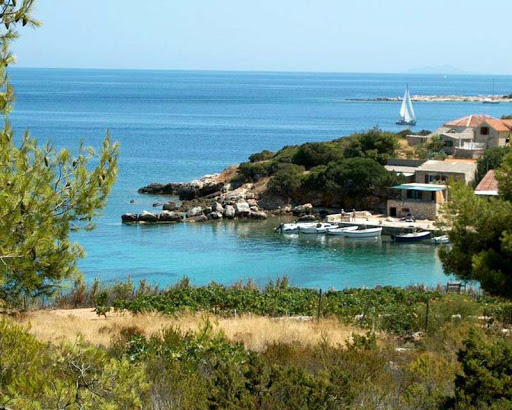
Brgujac. The epicentre of Vis island's punk-croc scene? © Tourist Board island Vis
Snapped on the waterfront of Brgujac and posted to the Facebook group 'Moj otok Vis (My island Vis)', the uncommon visitor has raised both eyebrows and merriment. Nobody is quite sure how the crocodile got here, not least the sailor on whose boat the crocodile was found.
Nobody knows of anyone keeping a crocodile as a pet on the island. The sailor and his boat haven't travelled anywhere that far over recent weeks. Vis island's long distance from the Croatian coast does theoretically place it closer to the African continent, where a crocodile might be more naturally found. But it's only relatively nearer. Africa is still over 1500 kilometres away. This youngster doesn't look to be capable of making such a swim. And, besides, although some do live in saltwater - most crocodiles prefer to spend their time in freshwater.
While the mystery of where the young crocodile came from is being solved, he's been taken off the sailor's boat. The crocodile was initially placed in the care of workers from the municipal company Gradina.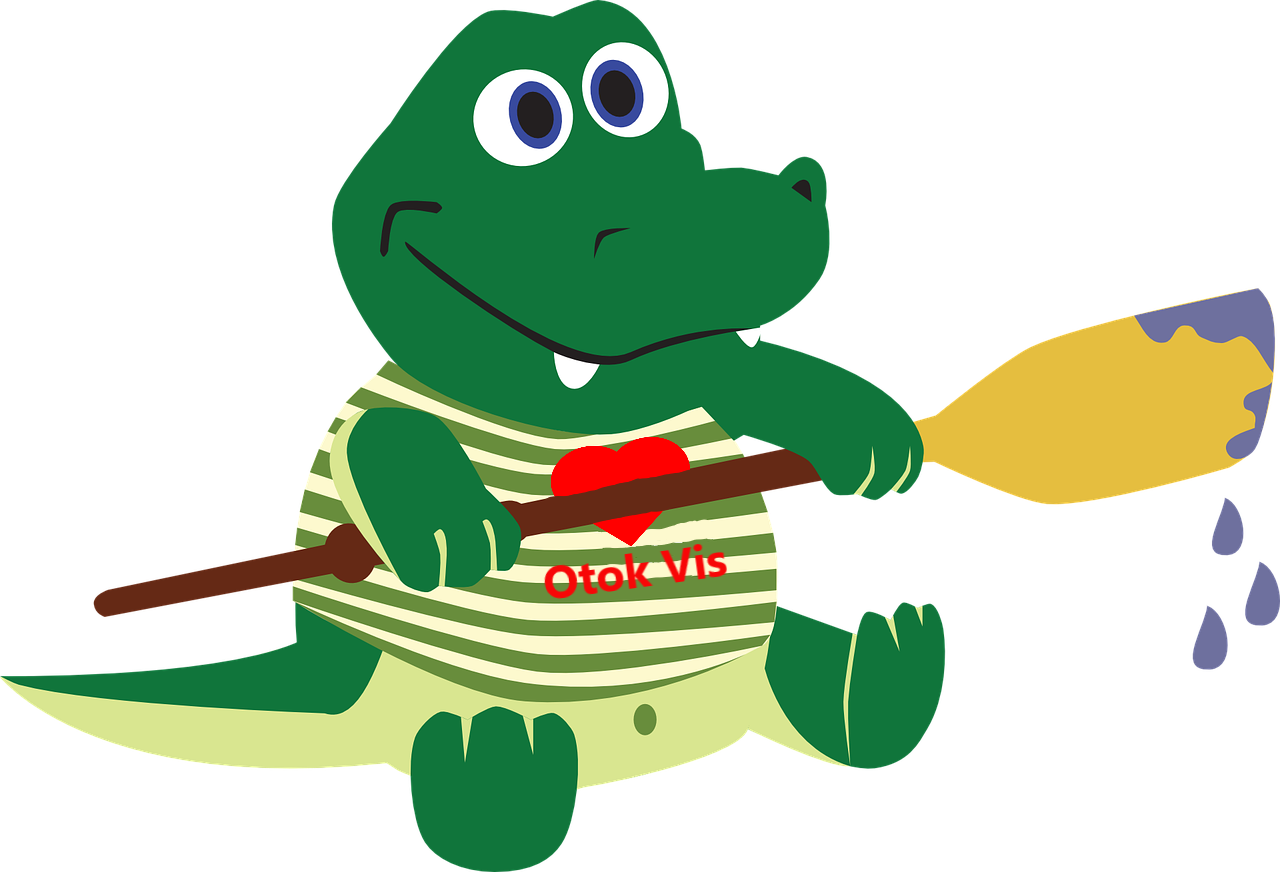
First COVID-19 Cases Recorded on Vis, Mayor Addresses Island Citizens
October 31, 2020 - The Mayor of Vis town and the Head of the Vis Civil Protection, Ivo Radica, addresses his fellow citizens after the first COVID-19 cases recorded on Vis.
"Unfortunately, the coronavirus happened to us too. So far, we have two positive cases, and there are more tests. The Vis Civil Protection Headquarters closed the kindergarten today for preventive reasons. In elementary school, first, fourth, and fifth grade had no classes on Friday, and as you know, Monday and Tuesday are holidays, so we’ll see what happens in the next few days. High school students have to wear protective masks. Also, in the High School, a conversation was held with the principal to stick to epidemiological measures a little more," said Radica for Morski.hr.
"We know that the All Saints celebration is ahead of us, that we will visit cemeteries in the town of Vis, that many people who are dearest will come here and I would ask us to try to adhere to all these epidemiological measures, to try to visit the graves of our loved ones throughout the day, and we have a couple of days. And if there are crowds there, that there is not much socializing in the cemetery or gathering. I would appeal to all catering facilities to pay attention to epidemiological measures these days, i.e., to all those conditions that should be respected in the work of catering facilities. As the Chief of the Civil Protection Headquarters, based on the Law on the Work of Catering Facilities, which has so far been allowed to work until midnight, I would not like to have it shortened to 10 pm. It will also depend on all of us whether we tighten measures.
I want to emphasize that testing for the elderly and infirm is in process. Please don’t put pressure on nursing homes because we know our most vulnerable group of people are there. In my last address, I said I would not like to address anyone this way. Unfortunately, the coronavirus has come to us; we have the opportunity, if we are all responsible and if we all adhere to the prescribed epidemiological measures, to stop it and not spread it further. Figuratively, it's like when one small fire happens, and you take a tire and a bucket of water and put it out. Let’s make sure Canadairs don't have to put out that fire.
Let's be patient for a week to see what will happen, and please, let's all be responsible," concluded the mayor of Vis, Ivo Radica.
To read more about coronavirus in Croatia, follow TCN's dedicated page.


